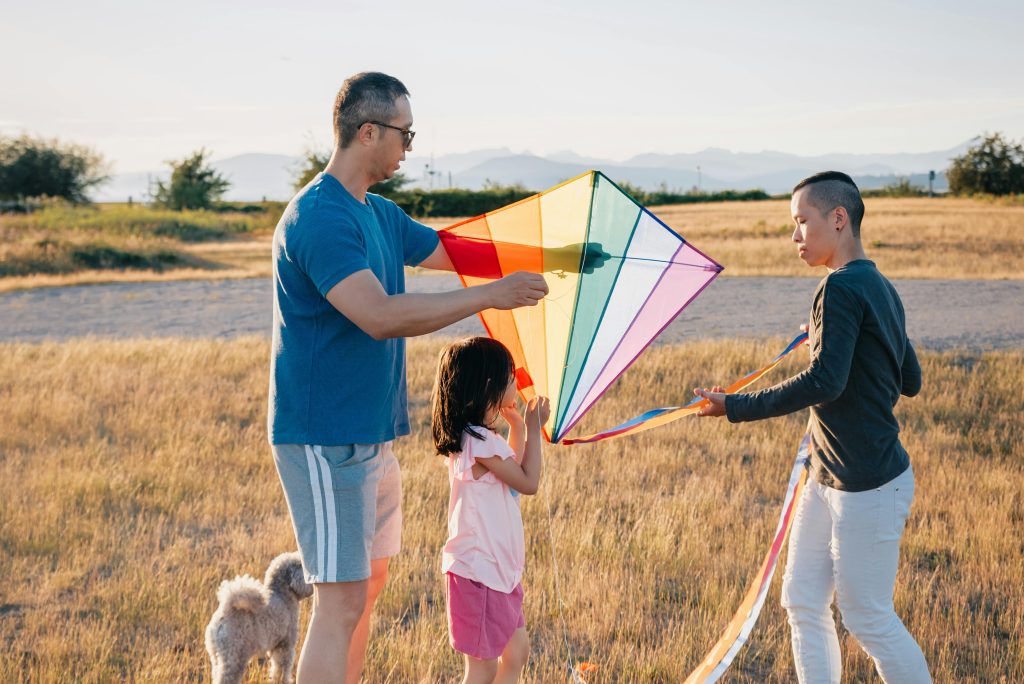
Every parent wants to raise strong, kind, and resilient children who grow into adults who know their worth, navigate challenges with confidence, and form healthy relationships. But what does it really take to foster this kind of security and independence?
There is considerable debate about this topic, ranging from tough love inspiring grit, to the gentlest of helicoptor parenting which fears the lasting scars of any childhood struggle. Likely, where you fall on the continuim of permissive to authoritarian parenting determines how you see children developing resilience. I want to posit that there is quite a bit of wiggle room for parents to navigate. And, at the same time, at the heart of it all is a singular, foundational principle: connection.
Kids don’t thrive because they’re constantly corrected, disciplined, or pushed to be “better.” They also don’t thrive without direction, boundaries, and consequences for inappropriate behavior. Truly, they thrive because they feel deeply seen, loved, and valued, especially in the small, everyday moments. If you can master this, the rest becomes so much easier to navigate.
The Power of a Loving Gaze
One of the most powerful ways to nurture security in a child is through what psychologist Daniel Stern calls the “loving gaze.” When a caregiver looks at their child with warmth, delight, and genuine interest, it sends a powerful message:



When kids frequently receive this kind of attuned attention, it becomes an anchor for their self-worth. They internalize the feeling of being loved without conditions, not just when they behave well, achieve something, or meet expectations. This becomes the foundation for their self-concept, their confidence, and their ability to face challenges with grace.

Play: The Language of Connection
Play is more than just entertainment—it’s how kids bond, explore emotions, communicate, learn, and feel close to their caregivers. A child who gets to play freely with a parent feels emotionally safe in ways words can’t always convey.







When you engage in play, your child registers: My parent enjoys being with me. I matter.
Affection: The Nervous System’s Reset Button
Physical affection regulates a child’s nervous system and reinforces emotional security. Studies show that consistent affection in childhood is linked to lower stress, better emotional resilience, and stronger self-esteem in adulthood.

Filling Their Emotional Cup
Kids inevitably experience frustration, disappointment, and moments of disconnection. That’s part of life. But when their “emotional cup” is regularly filled with love, laughter, and warmth, those hard moments don’t shake them as much.
They need frequent reminders—not just in words, but in actions—that they are deeply loved, even on the messy, imperfect days.
How to Fill Your Child’s Emotional Cup Daily:




Security Leads to Independence
Many parents fear that too much connection will make kids clingy or dependent. But the opposite is true: when kids feel deeply loved, seen, and safe, they develop the confidence to explore, take risks, and grow into secure, independent adults. There may be reason to be concerned with excessively sheltering your kids from risk, but there is no risk from offering love consistently and abundantly to your kids.
A child who knows, “I am loved no matter what,” doesn’t have to seek constant external validation. They don’t need to prove their worth or shrink themselves to fit in. Instead, they step into the world with a solid sense of who they are—because they were first fully seen and loved at home.
Final Thoughts
The best thing you can give your child isn’t a perfect childhood. It’s the feeling of being deeply cherished—even on the hard days, even when they’re struggling, even when life gets chaotic.
So today, try this:




These simple acts, repeated again and again, are what build the foundation for a lifetime of emotional security. And that’s what kids need most.